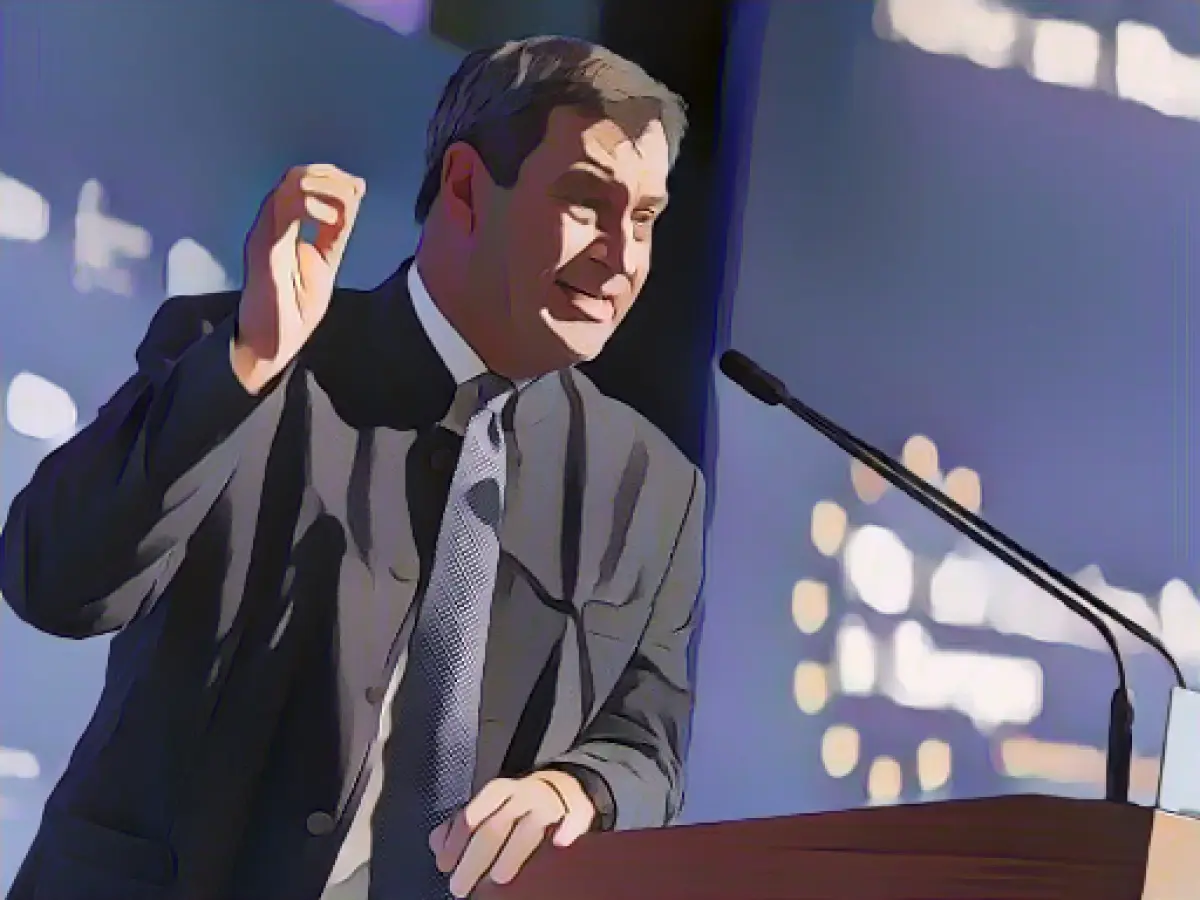In light of the ongoing budget crisis and governmental disputes, Markus Söder, the influential leader of the CSU and Bavaria's Prime Minister, has proposed the idea of an early election, coinciding with the European vote scheduled for June 2024. According to Söder, the coalition government should be subjected to a vote of confidence, not in parliament, but before the German people. He voiced his skepticism regarding Chancellor Scholz's ability to resolve the nation's challenges, and suggested that a new edition of the grand coalition with the SPD could potentially emerge from these elections.
Söder has long since rejected the notion of a coalition between the CDU/CSU and the Greens, referring to this alliance as a solid model for prosperous times, but inadequate for grappling with challenging circumstances. Similarly, he doubts the long-term viability of the FDP as a stable governing partner due to waning internal substance and growing centrifugal forces within the coalition.
The CSU chairman has also dismissed calls to abandon or reform the debt brake, attributing these suggestions to irresponsible opposition figures. Regardless, he expects that Chancellor Scholz will clarify the direction of the government in his upcoming statement, explicitly stating their intentions for the journey ahead. If the federal government declares an emergency for the 2023 budget, the CDU/CSU will not object, but Söder remains ambiguous about how this will affect next year's budget negotiations.
When discussing potential governmental changes, Söder floated the idea of a confidence vote for the federal government before the German people, bearing in mind the financial challenges at hand. He also reiterated his objection to altering the debt brake, an idea proposed by some CDU state premiers.
In the broader context of these discussions, Söder addressed the issue of governmental changes, highlighting the importance of addressing border control rejections in any coalition deal, and his unwavering support for Friedrich Merz as the Union's Chancellor candidate. He emphasized the need for a distinct Union policy that stands apart from radical fringe parties, like the Alternative for Germany (AfD).
In terms of coalition government options, some sources suggest the most likely post-election alliance is between the Union and SPD, due to the CSU's reluctance to partner with the Greens. However, this alliance could prove strained, hindering significant reforms. With regard to the debt brake and budget crisis, easing this restriction is considered a possibility in a potential coalition, allowing for new investments to bolster infrastructure and tackle unemployment.
Sources: [1] DW [2] Handelsblatt [4] Die Zeit [5] Bild








